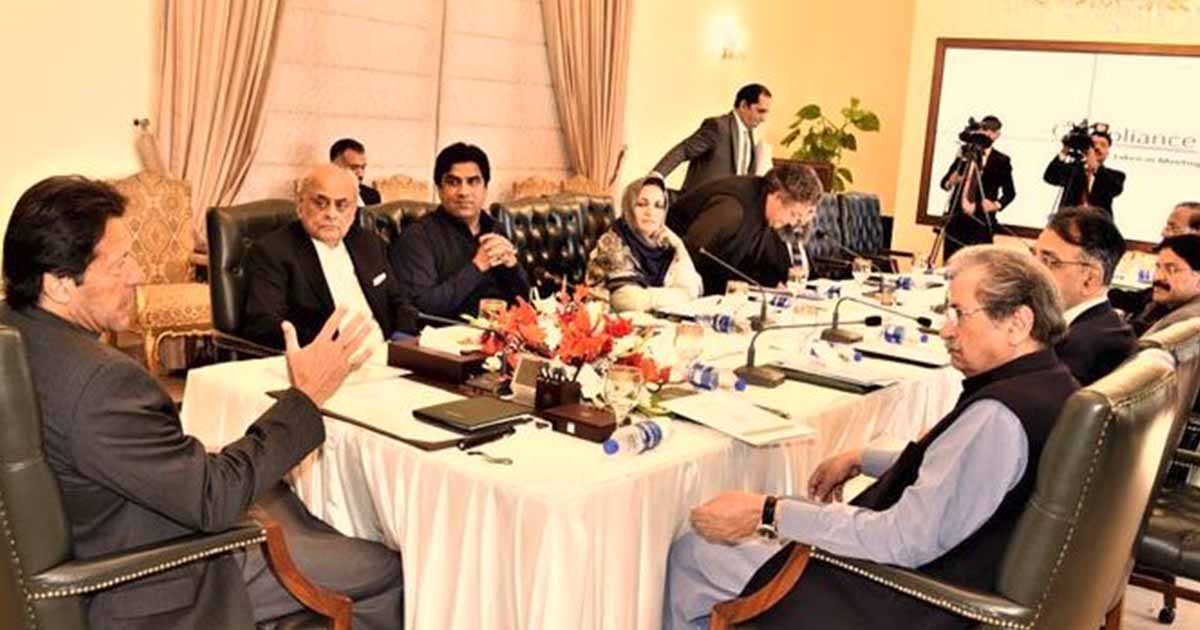Prime Minister Imran Khan chaired a high-level meeting on Tuesday and directed crackdown over those involved in smuggling, and hoarding which has caused unnecessary inflation and hike in prices of basic necessity commodities. In this regard, he has asked the national agencies Inter-Services Agency, Intelligence Bureau, Federal Investigation Agency, and Federal Board of Revenue to present monitoring reports regularly.
Furthermore, the prime minister asked the ministry of interior and law enforcement agencies to present their report immediately within 48 hours. He further said that there will be zero tolerance against smugglers and hoarders. In addition to it, he also directs the chief executives of the four provinces to coordinate and present the report in this connection.
Read more: Rise in inflation expected as CPI increases
He emphasized that keeping in view the recommendations given by the task force tasked to combat smuggling; short-term, medium-term and long-term measures should be initiated.
Imran Khan said,” the menace of smuggling is causing billions of rupees loss to the national economy of Pakistan, adding that the inflation and the price level must be lowered down up[ to 20 percent of the current price levels of basic essentials.”
Causes of inflation rise in the current fiscal year
The decomposition of the rate of inflation in January 2020 provides some interesting insights. The contribution to the rise in the CPI can be distributed between food, energy and other non-food goods and services. Estimates are that 32 percent of the inflation is due to the rise in food prices. Energy items have contributed 22 percent and the remainder, 46 percent, by non-food and non-energy goods and services.
In regard, ministers will have to do good to put in place an independent price monitoring mechanism. The prices and supplies of daily-use commodities may be verified through sources other than government officials
Currently, at the end of January, there were all times high inflation of 14.6 after 12 years. This has caused left a common man into abyss of inflation.
How the hoarding can be controlled to contain the undue rise in prices
he gaps seen in the current price monitoring system hasn’t yet been plugged and could cost the government vehemently as the holy month of Ramadan will be after 2 months. It is during times just prior to Ramadan that hoarding is seen most intensively and the chances of increase in inflation are more higher. The proceedings from the recent Economic Coordination Committee (ECC) meetings have shown the government’s inability to correctly forecast and manage the buffer stocks in wheat and sugar.
Additionally, there strong need to have checks and balances of the prices of daily essentials so that, the undue profiters be pinpointed and necessary action be taken against those culprits. If the new price complaint apps which are launched to keep a check on prices will be able to deliver the magic in time.
Read more: Why Supreme Court of Pakistan needs to throw out frivolous & dangerous petitions on the economy
Moreover, all provincial chief executives and their necessary output in curtailing inflation is inevitable. In regard, ministers will have to do good to put in place an independent price monitoring mechanism. The prices and supplies of daily-use commodities may be verified through sources other than government officials.
Additionally, the prices from both official and independent sources should be made online in real-time for all districts. The concerned district management should prepare a weekly report against any violation of the official price list for essentials. This report may be reviewed by chief ministers, while they chair the weekly cabinet meetings.














